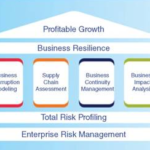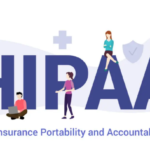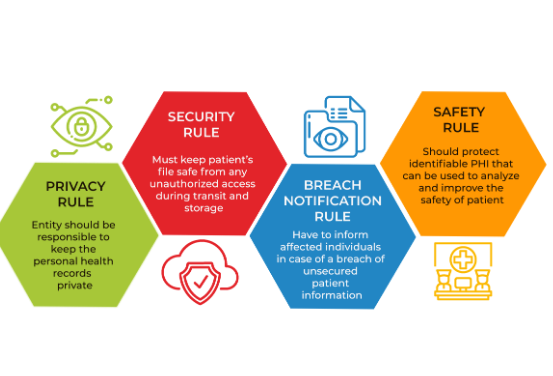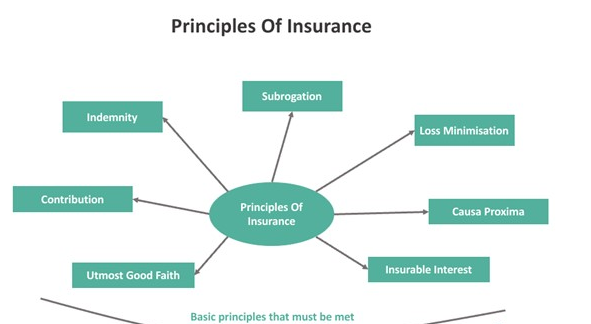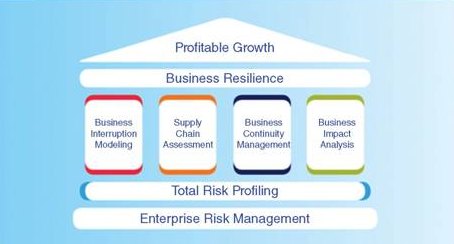Privacy concerns surrounding health insurance have become a critical issue as digitalization transforms the healthcare industry. The Health Insurance Act, which governs many aspects of health insurance coverage and operations in various countries, plays a significant role in shaping how personal health information (PHI) is collected, stored, shared, and protected. While health insurance aims to provide access to essential medical services, it also necessitates the collection of sensitive data, raising important questions about how this data is used and safeguarded.
In this article, we explore the privacy issues related to the Health Insurance Act, focusing on how it impacts patients’ rights, data protection regulations, and the evolving challenges posed by digital healthcare systems. We will also discuss the broader implications of these privacy concerns on individuals, healthcare providers, and insurance companies, as well as how regulatory frameworks can adapt to address these challenges.
The Health Insurance Act and Its Role in Data Privacy
The Health Insurance Act refers to the legal framework that regulates health insurance policies and procedures in various jurisdictions. In countries like the United States, it includes laws such as the Health Insurance Portability and Accountability Act (HIPAA), while in others, similar legislation governs health insurance practices and ensures that individuals have access to healthcare.
A key component of the Health Insurance Act is the protection of Personal Health Information (PHI) and the right to privacy for individuals whose medical data is collected and stored by healthcare providers, insurers, and other parties. However, the rise of digital healthcare services, electronic health records (EHRs), and health information exchanges has introduced new challenges in maintaining privacy, prompting debates over the adequacy of existing regulations.
Key Provisions of Health Insurance Privacy Laws
- Right to Access and Control Health Information: Under the Health Insurance Act and related regulations like HIPAA, individuals have the right to access their health information, request amendments, and control how their data is used or shared.
- Data Security Requirements: Healthcare providers and insurers are required to implement data security measures to protect PHI from unauthorized access, breaches, and misuse.
- Limitations on Data Sharing: The Act limits the sharing of PHI to situations deemed necessary for medical treatment, payment, or healthcare operations, unless the individual explicitly consents to additional sharing.
Despite these safeguards, the evolving nature of healthcare and technology presents ongoing risks and complexities regarding data privacy.
Privacy Risks and Challenges in Health Insurance
The intersection of health insurance, data privacy, and technology has given rise to several pressing privacy concerns. These challenges are influenced by factors such as data breaches, third-party data sharing, advances in health technologies, and the growing use of health data for purposes beyond patient care, such as research and marketing.
1. Data Breaches and Cybersecurity Threats
One of the most significant privacy issues in the healthcare sector, including health insurance, is the vulnerability of personal health information to data breaches. Healthcare data breaches have become increasingly common, with cybercriminals targeting sensitive medical records for various malicious purposes. This is due in part to the high value of health data on the black market, where it can be sold for identity theft, fraud, or other criminal activities.
A study by the Ponemon Institute found that healthcare data breaches are among the most costly, with each breach costing millions of dollars in damages and causing significant harm to the individuals affected. For patients, the loss of control over their health information can result in privacy violations, financial harm, and damage to their personal and professional lives.
Examples of Data Breaches in Health Insurance:
- In 2015, the Anthem Inc. data breach exposed the personal information of nearly 79 million individuals, including names, Social Security numbers, and health records.
- In 2020, the Florida Blue health insurance company faced a data breach affecting over 40,000 customers, highlighting ongoing cybersecurity vulnerabilities in the industry.
Insurance companies and healthcare providers are required to implement strong cybersecurity measures to protect PHI, but the increasing sophistication of cyberattacks has made data breaches an ever-present risk. Insurers must continuously update their systems and protocols to stay ahead of emerging threats.
2. Third-Party Data Sharing
Health insurance companies often share PHI with third parties for various purposes, including claims processing, medical research, and healthcare administration. While this data sharing is sometimes necessary for the efficient operation of health insurance systems, it introduces significant privacy risks when not properly managed.
Third-party data sharing can lead to unintended privacy violations, especially if the organizations involved fail to meet the same data protection standards as the original data holders. In some cases, insurers may share data with third-party vendors, contractors, or partners without adequate safeguards, exposing patients’ sensitive information to unauthorized access or misuse.
For instance, a health insurance company might outsource claims processing to a third-party provider, who could potentially mishandle or lose control of the data. Additionally, sharing health information for marketing or research purposes, without explicit consent from the individual, can lead to ethical and legal concerns.
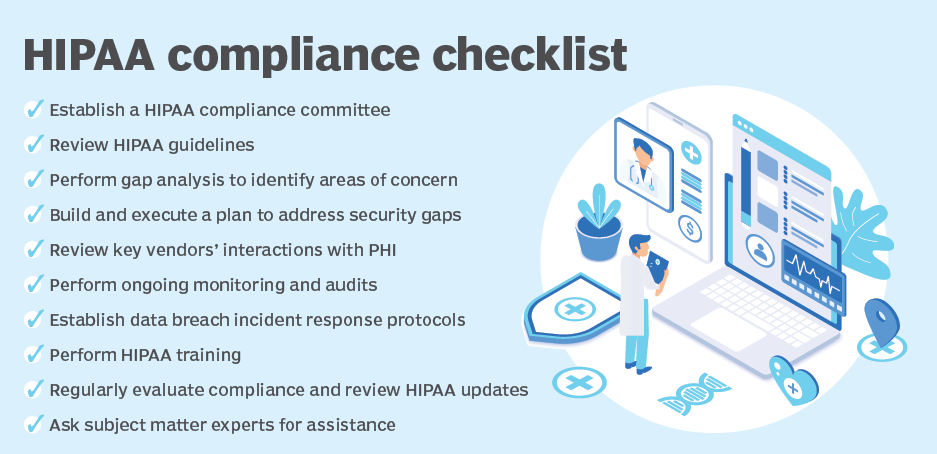
3. Inadequate Consent Practices
One of the most significant privacy issues related to the Health Insurance Act is the inadequacy of informed consent practices when it comes to the use and sharing of PHI. While individuals have the right to consent to the sharing of their health data, the process of obtaining consent is often opaque and confusing, leaving patients unaware of how their data will be used.
Many health insurance companies include broad clauses in their privacy policies, allowing them to share data with third parties for purposes that may not be immediately clear to the consumer. This lack of transparency can result in the misuse of health data, such as its use for targeted marketing or profiling without the individual’s full understanding or agreement.
Patients should be given clear, understandable explanations about how their data will be used, as well as the ability to opt out of certain uses. However, in practice, the consent process is often buried in lengthy, jargon-filled privacy policies that few consumers read or understand.
4. Health Data and Predictive Analytics
The rise of predictive analytics and big data in healthcare has introduced new challenges for data privacy. Health insurance companies are increasingly using predictive analytics to assess risk, personalize coverage, and manage costs. By analyzing large datasets of patient information, insurers can identify trends, predict outcomes, and develop more targeted insurance products.
While this technology has the potential to improve healthcare outcomes and reduce costs, it also raises concerns about data profiling and discrimination. For example, insurers may use predictive analytics to determine which patients are at higher risk for certain conditions, potentially leading to the denial of coverage or higher premiums for those individuals. Additionally, the use of health data for non-medical purposes, such as marketing or insurance risk assessment, can lead to a loss of patient autonomy and control over their information.
In some cases, insurers may access data from sources outside traditional healthcare settings, such as wearable devices, health apps, or social media platforms. This expansion of data sources raises questions about the limits of data privacy and how much control individuals have over the data collected about them.
Legal and Regulatory Frameworks for Privacy Protection
The Health Insurance Act and related privacy regulations, such as HIPAA in the U.S., the General Data Protection Regulation (GDPR) in Europe, and other regional laws, play a critical role in protecting the privacy of individuals’ health information. These frameworks aim to ensure that health data is collected, used, and shared in a way that respects individuals’ privacy rights while allowing for necessary healthcare operations.
1. Health Insurance Portability and Accountability Act (HIPAA)
In the United States, HIPAA sets the standard for protecting PHI and governs how health insurers, healthcare providers, and third-party vendors handle medical information. HIPAA’s Privacy Rule and Security Rule establish specific requirements for safeguarding patient data, including:
- Limiting the use and disclosure of PHI without patient consent.
- Ensuring that individuals have the right to access and correct their health information.
- Mandating that insurers and healthcare providers implement administrative, physical, and technical safeguards to protect data.
HIPAA also establishes penalties for violations, including fines and other sanctions for healthcare providers and insurers that fail to protect patient privacy adequately.
2. General Data Protection Regulation (GDPR)
In Europe, the GDPR provides a comprehensive framework for data privacy and protection, including provisions that apply to health data. The GDPR grants individuals more control over their personal information and requires organizations to obtain explicit consent before collecting or processing sensitive data, such as health information.
Under the GDPR, health insurers must:
- Obtain explicit consent from individuals before processing their health data.
- Allow individuals to access, rectify, or delete their health information.
- Implement strong security measures to protect data from breaches.
The GDPR also includes stringent penalties for non-compliance, with fines reaching up to 4% of a company’s global annual revenue for serious violations.
3. Other Regional Laws and Regulations
In addition to HIPAA and GDPR, many countries have their own privacy laws that govern the collection, use, and sharing of health data. For example:
- Canada’s Personal Information Protection and Electronic Documents Act (PIPEDA): Regulates how health insurers and healthcare providers handle personal health information in Canada.
- Australia’s Privacy Act (1988): Includes provisions for protecting health information, requiring organizations to take reasonable steps to safeguard data and obtain consent before sharing PHI.
These regulations are designed to protect individuals’ privacy while allowing for the effective operation of health insurance systems. However, as technology evolves and the volume of health data increases, existing regulations may need to be updated to address new challenges.
The Future of Privacy in Health Insurance
The privacy issues surrounding health insurance are expected to evolve as healthcare systems become more digitalized and interconnected. Several trends are likely to shape the future of privacy protection in health insurance:
1. Expansion of Telemedicine and Digital Health Services
The COVID-19 pandemic accelerated the adoption of telemedicine and digital health services, leading to a dramatic increase in the collection and sharing of digital health data. As telemedicine becomes more common, health insurers will need to implement stronger privacy protections for patients using these services. This may include ensuring that telehealth platforms meet the same data security standards as traditional healthcare settings.
2. Use of Artificial Intelligence (AI) and Machine Learning
The use of AI and machine learning in health insurance is expected to grow, offering new opportunities for personalized coverage and cost management. However, the use of AI in healthcare also raises concerns about data privacy, discrimination, and transparency. Insurers will need to ensure that their AI algorithms are designed in a way that protects patient privacy and avoids biased outcomes.
3. Stronger Privacy Regulations
As awareness of privacy issues grows, regulatory bodies may introduce stronger privacy protections for health data. This could include new laws requiring greater transparency in data sharing, stricter consent requirements, and enhanced cybersecurity standards.
For example, the U.S. HITRUST Alliance is working to develop a more comprehensive set of standards for protecting healthcare data, while the European Union may update the GDPR to address emerging privacy challenges in digital health.
Conclusion
The Health Insurance Act and related privacy laws play a critical role in safeguarding personal health information, but the rapid evolution of healthcare technology presents ongoing challenges for data privacy. Data breaches, third-party sharing, inadequate consent practices, and the growing use of predictive analytics in health insurance have raised significant concerns about how PHI is handled and protected.
While existing legal frameworks such as HIPAA, GDPR, and other regional laws provide important protections, there is a need for continuous improvement in how health insurers and healthcare providers address privacy risks. Stronger regulations, improved consent processes, and enhanced cybersecurity measures will be essential for protecting patient privacy in an increasingly digital healthcare landscape.
As healthcare systems continue to evolve, it will be crucial for policymakers, healthcare providers, and insurers to work together to create a future where individuals can trust that their health information is secure, confidential, and used ethically.


